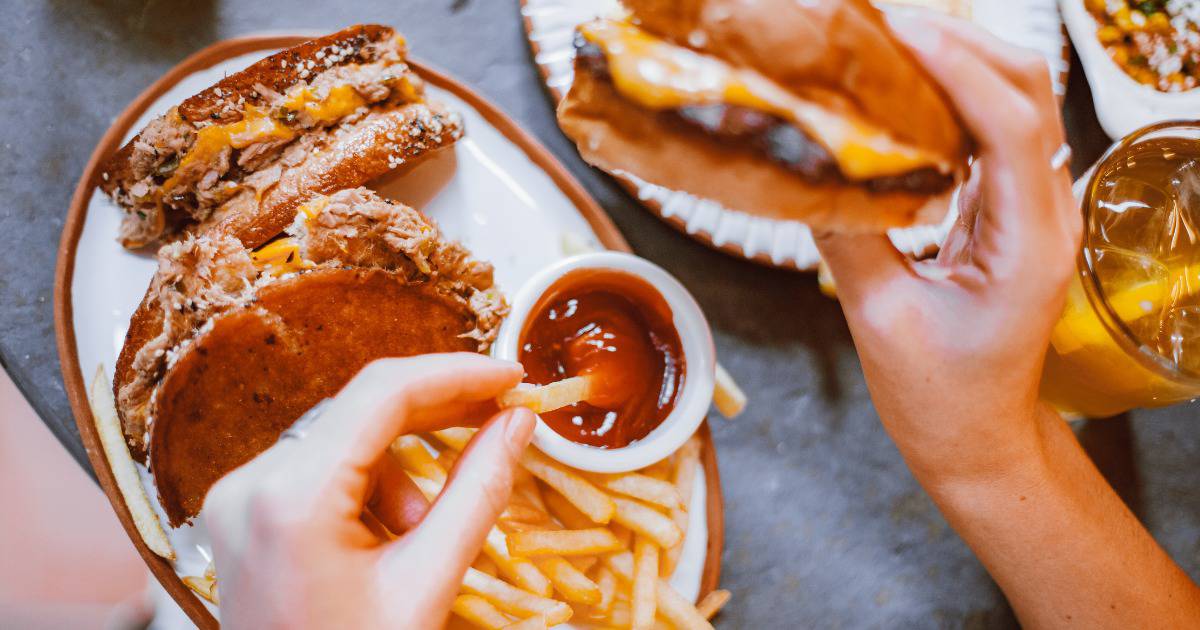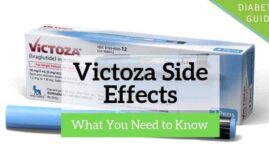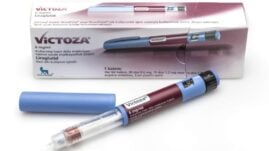
Victoza (liraglutide) is an increasingly popular treatment for type 2 diabetes.
It works in part because it decreases the amount of sugar the liver produces, slows digestion and reduces feelings of hunger, and increases insulin production.
Because it affects the digestive system, you may be wondering what dietary restrictions come along with taking Victoza.
This article will answer your questions about the foods you should and shouldn’t eat while taking Victoza.
Table of Contents
- What is Victoza?
- What are the side effects of Victoza?
- What foods should I avoid while taking Victoza?
- What should I eat while taking Victoza?
- Do you need to take Victoza with food?
- Why is Victoza making me sick to my stomach?
- What supplements should I avoid while taking Victoza?
- Can Victoza help with weight loss?
- Do Victoza and Ozempic have similar dietary restrictions?
What is Victoza?
Victoza, with its active ingredient liraglutide, is a once-daily injectable medication.
It is approved for blood sugar management in people ages 10 and up with type 2 diabetes and for reducing the risk of major cardiovascular events in adults with type 2 diabetes and cardiovascular disease.
It belongs to the glucagon-like peptide-1 (GLP-1) receptor agonists class, which also includes drugs like Ozempic (semaglutide).
Victoza works by reducing liver sugar production, slowing digestion and curbing appetite, and helping the pancreas produce more insulin in response to high blood sugar. These mechanisms help with blood sugar and weight management.
For those with active insulin production, it enhances appropriate insulin release.
Read more in: Everything You Need to Know About Victoza.
What are the side effects of Victoza?
Victoza primarily affects the gastrointestinal system, which can lead to common side effects like nausea, diarrhea, constipation, vomiting, and acid reflux. The medication slows digestion to help smooth blood sugar levels and reduce appetite.
Additionally, less common but serious side effects include hypoglycemia (low blood sugar), pancreatitis, thyroid tumors, kidney issues, gallbladder problems, and severe allergic reactions.
See more in: Victoza Side Effects: What You Need to Know.
What foods should I avoid while taking Victoza?
While the U.S. Food and Drug Administration (FDA) has not specified foods to avoid with Victoza, certain types can worsen side effects like nausea and disrupt blood sugar management.
It’s important to consult your doctor before dietary changes, but generally, you should avoid:
High-sugar foods
Foods with added sugars, such as sodas, candies, and refined carbohydrates, can spike your blood sugar and hinder weight management efforts.
High-fat foods
Saturated and trans fats, found in fried and processed foods, can worsen gastrointestinal discomfort and are linked to cardiovascular risks, which are particularly hazardous for people with diabetes.
Alcohol
Alcohol can decrease liver glucose production, increasing hypoglycemia risk.
This effect, when combined with Victoza, can make alcohol consumption potentially dangerous. Discuss alcohol use with your healthcare provider, especially if you have a history of alcohol abuse.
For more details, always speak with your provider to tailor dietary recommendations to your specific health needs.
Read more about blood sugar and alcohol in: Diabetes and Alcohol: How Does Alcohol Affect Blood Sugar?
What should I eat while taking Victoza?
Understanding the dietary restrictions with Victoza helps in planning what you can eat to support your diabetes management effectively:
Lean proteins
Opt for sources like chicken, turkey, beans, legumes, low-fat cheese, Greek yogurt, and tofu. These should be cooked in healthy ways, such as grilling or steaming, to avoid unnecessary fats.
Healthy fats
Include monounsaturated and polyunsaturated fats, which support heart health and aid in the absorption of vitamins A, D, E, and K. Good sources include avocados, olives, eggs, fish, nuts, and oils like extra-virgin olive oil.
Low-glycemic vegetables
Focus on vegetables that don’t cause significant blood sugar spikes, such as broccoli, cauliflower, spinach, and other leafy greens. Begin with moderate amounts to gauge your tolerance, as they can cause bloating and gas.
Foods for nausea management
If you experience nausea, consider bland foods like crackers, toast, and rice initially, but be cautious of their potential to raise blood glucose levels. Hydrating foods like soups and gelatin can also be soothing.
Integrate these foods gradually and observe your body’s response, especially when starting Victoza. Always discuss significant dietary changes with your healthcare provider to ensure they align with your overall health goals.
Do you need to take Victoza with food?
Victoza can be taken with or without food, depending on your preference and how it affects side effects. The important part is consistency in the timing of your daily dose.
See more in: Victoza Dosing: How Much Should You Take?
To make it easier to remember when to take Victoza, many people find it helpful to align it with their mealtimes.
Why is Victoza making me sick to my stomach?
Nausea or an upset stomach is common when starting Victoza, primarily due to how it changes digestion.
If you experience severe symptoms, they persist, or you notice signs of gallbladder issues, such as repeated vomiting or continuous pain in the upper part of your stomach, consult your doctor promptly.
What supplements should I avoid while taking Victoza?
Before starting Victoza, inform your doctor about all medications, vitamins, and supplements you are currently taking.
Victoza can change how food and, consequently, other substances are absorbed in your digestive system, potentially affecting the effectiveness of oral supplements and medications.
While no supplements are explicitly contraindicated with Victoza, it is important to exercise caution and consult your healthcare provider for tailored advice.
Can Victoza help with weight loss?
As part of a comprehensive diabetes care plan, Victoza has been observed to help with weight management by delaying stomach emptying and reducing appetite, which may help reduce overall calorie intake.
See more in: Victoza and Weight Loss: Can Victoza Help You Lose Weight?
Do Victoza and Ozempic have similar dietary restrictions?
Yes, Victoza and Ozempic share similar dietary considerations. While no specific foods are strictly prohibited with either medication, the general dietary guidelines applicable to Ozempic also apply to Victoza.
Learn more in: Ozempic vs. Victoza: Which One Should You Choose?
This includes making mindful choices to support blood sugar management and overall health.
Learn more in Everything You Need to Know About Victoza. Did you find this article helpful? Click Yes or No below to let us know!




